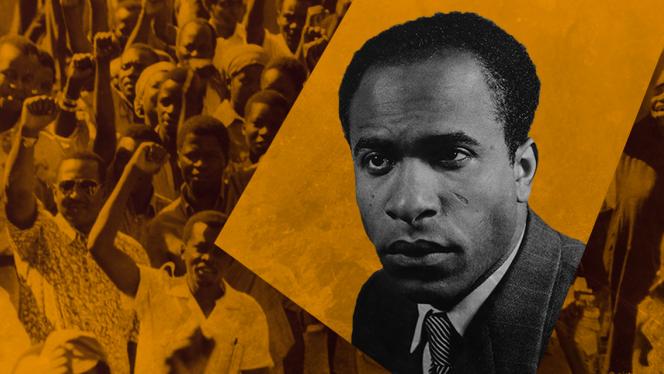Thursday 21 November 2024
Fanon in Somali

Frantz Fanon (1925-1961) was not only a psychiatrist, but also a critical thinker, political theorist, and above all, a freedom fighter. He wrote extensively on the profound effects of colonialism and racism on the psyche of both individuals and groups, as well as on the societies of colonized people. His works have served as a powerful inspiration for numerous liberation movements and activists across the globe, particularly in Africa, Asia, and Latin America. Even in the 21stcentury, Fanon’s analysis of the colonial situation, the violence inflicted by both the oppressor and the oppressed, the role of culture and language in resistance and emancipation, and the urgent need for a new humanism based on mutual recognition and solidarity remain highly relevant and applicable, as various forms of oppression and exploitation persist.
As a Somali translator, I have made the decision to translate one of Fanon’s works into Somali. The Somali peoplehas been subjected to many of the experiences that Fanon wrote about substantially.
Somali language possesses a rich oral tradition, but its written history is relatively young. It was not until 1972 that a standard orthography based on the Latin script was adopted. Since then, Somali literature has flourished, giving rise to numerous poets, novelists and short story writers, playwrights, and essayists who have contributed significantly to the development of the Somali written tradition. I firmly believe that the Somali script, despite being only fifty years old, has made remarkable progress, surpassing its relatively young age.
The book I have chosen to translate, or rather to Somalize, is Fanon’s seminal work, The Wretched of the Earth. This was his final masterpiece before his untimely demise in 1961, and it is the first of his works to be translated into Somali, nearly half a century after its initial publication. This extraordinary book weaves together the personal and professional experiences of its author, shedding light on the dehumanizing effects of colonialism as a historical reality. It also delves into the intergenerational trauma and enduring impacts that persist even in post-colonial settings. Dubbed by some “the Handbook of the Black Revolution,” this book employs psychoanalytic and Marxist lenses to vividly depict the horrors of colonization, oppression, and war. Moreover, it serves as a guide to understanding these realities and embarking on the journey of decolonization.
My motivation for translating Fanon into Somali is twofold: primarily, to introduce his profound ideas to Somali readers who may be unfamiliar with his works or lack access to them in other languages, effectively democratizing knowledge accessibility; and second, to try and enrich the Somali language and literature with new concepts, expressions, and perspectives that can ignite critical thinking and creativity among Somali speakers and readers alike. I firmly believe that Fanon’s writings offer invaluable insights and lessons for the Somali people, who have endured the ravages of colonialism, civil war, state collapse, religious extremism, famine, displacement, and foreign interventions in their recent history. Fanon’s scathing critique of the colonial system, his impassioned call for self-determination and dignity, his visionary outlook on a new African culture and identity, his astute analysis of the significance of national consciousness, and his unwavering advocacy for a humanist and progressive alternative to the capitalist and imperialist world order can deeply resonate with the aspirations and struggles of the Somali people for peace, justice, and development.
Through the translation of Fanon’s work into Somali, my intention was to actively contribute to what I refer to as the Somalification of Fanon. This process involves adapting and appropriating Fanon’s ideas to the unique Somali context and reality. It is crucial to note that my aim is not to distort or dilute Fanon’s original message, but rather to make it more accessible and relevant to the Somali audience. I firmly believe that Fanon himself would have embraced such an endeavor. He was not a dogmatic or rigid thinker, but rather an open and flexible individual, always attuned to the specificity and diversity of each situation and culture. Fanon not only theorized but also actively engaged with the concrete realities and challenges of his time and place. He was not merely a critic, but also a builder, constantly seeking to create new forms of expression and action that could bring about transformative change in the world.
Therefore, by translating Fanon’s work into Somali, my goal is to ignite a dialogue and foster a debate among Somali intellectuals, activists, and ordinary individuals. It is my hope that they will critically engage with Fanon’s ideas and apply them to their own circumstances and needs to make sense of their realities. I aim to stimulate a creative and constructive process of Somalification of knowledge, one that can generate fresh ideas and innovative solutions for the benefit of the Somali readership.
In undertaking this task, I am driven by a deep desire to honor Fanon’s legacy and spirit. I am committed to continuing his quest for a better and more humane world.
One of the reasons why I feel an intense connection to Fanon’s ideas is due to my study of psychology, a field closely related to Fanon’s profession. I had the privilege of attending the Psychology Department of Frantz Fanon University, the only university on Earth named after the revolutionary psychiatrist. This esteemed institution was founded and led by Dr. Hussein Abdilahi Bulhan; a prominent Somali scholar deeply influenced by Fanon’s writings.
It was through Dr. Bulhan’s 1985 book, Frantz Fanon and the Psychology of Oppression, that I was first introduced to the captivating world of Fanonian thoughts. As an alumnus of Frantz Fanon University, I take an immense pride in my association with this prestigious institution. I am determined to carry forward the remarkable legacies of both Fanon and Bulhan in my pursuits as a translator, writer, and aspiring psychologist hailing from Africa. Thus, this translation endeavor is not only a testament to my passion but also a humble attempt to repay the profound debt I owe to these intellectual giants, for we are dwarfs perching on the shoulders of giants as St. Bernard of Clairvaux reflected. Their profound insights have shaped my understanding of the human mind and the intricate dynamics of oppression. With a bold and resolute voice, I embark on this journey, hoping to contribute to the ongoing dialogue surrounding Fanon’s invaluable contributions.
In conclusion, my unwavering desire has always been to ignite a spark within the Somali masses, urging them to embrace the profound principles of the progressive thinkers like Fanon, particularly the re-humanization of those who have been stripped of their humanity. I yearn to awaken their national consciousness, conquer the collective alienation given birth by the colonial legacy, recover from the mental disorders of the enduring civil war(s), and enable them to tread the path of liberation, solidarity and dignity – an elusive way forward that remains crucially uncharted.
In pursuit of this aim, the year 2021 witnessed the launching of the Somali edition of Fanon’s magnum opus, aptly titled Looma’ooyaan, a Somali word literally meaning ‘forsaken souls who are lamented by no one.’ It was published by Hiil Press, a Somali printing and publishing house. This monumental classic now stands alongside a burgeoning collection of books in Somali that I have painstakingly translated and Somalized over the past four years. Among these literary treasures are the works of Edward Said, Paulo Freire, Harold Laski, and, of course, the indomitable Karl Marx.
Why have I dedicated myself to this arduous task, you may wonder? Well, as Fanon himself eloquently stated in his treatise, “Each generation must discover its mission, fulfill it or betray it, in relative opacity.” These words reverberate within me, urging me to tirelessly pursue my mission of enlightenment, even in the face of obscurity.










